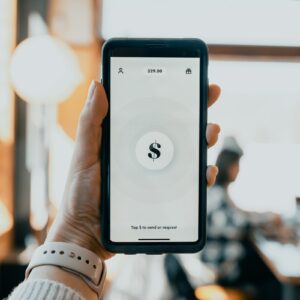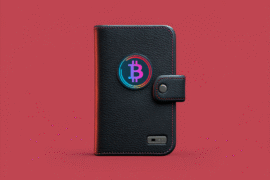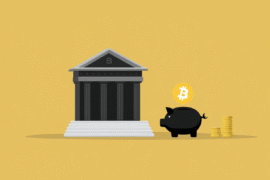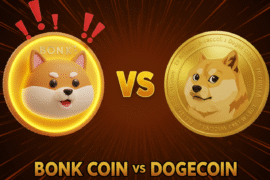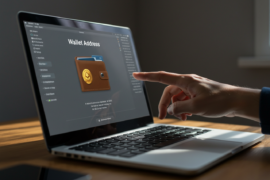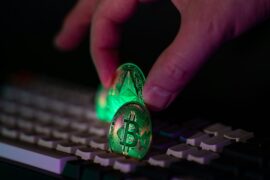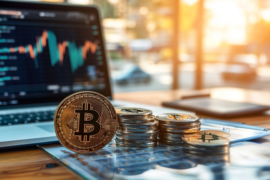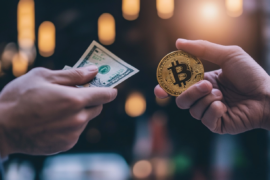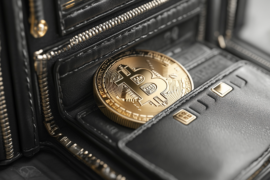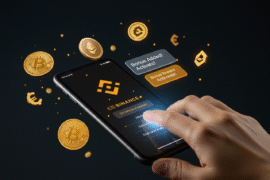This article may contain references to products or services from one or more of our advertisers or partners. We may receive compensation when you click on links to those products or services. Nonetheless, our opinions are our own.
The information presented in this article is accurate to the best of our knowledge at the time of publication. However, information is subject to change, and no guarantees are made about the continued accuracy or completeness of this content after its publication date.

Updated by Albert Fang
What is Nano (NANO)?
Nano is a peer-to-peer digital currency. It is a decentralized, open-source cryptocurrency based on directed acyclic graph (DAG) architecture with an Open Representative Voting (ORV) consensus mechanism. It operates without intermediaries by using a distributed ledger with a block-lattice data structure.
Nano was launched in October 2015 by Colin LeMahieu, with the aim of addressing blockchain scalability limitations that can result in restrictive fees and increased transaction confirmation times under load. It has feeless transactions that typically achieve full confirmation in under one second.
How to buy Nano (NANO)?
The most popular and well-respected cryptocurrency exchanges are Coinbase, Gemini, and Crypto. They have been in the industry since the inception of crypto. To buy the crypto you are looking for, simply register for any of the cryptocurrency marketplaces below and claim the bonus sign-up offer as well.
Voted "Best Overall Budgeting App" by Forbes and WSJ
Monarch Money helps you budget, track spending, set goals, and plan your financial future—all in one app.
Get 50% OFF your first year with code MONARCHVIP
Best no-fee crypto app for free mobile trading?
Voyager is a mobile-first, commission-free cryptocurrency exchange trading platform for users around the world. Think of Voyager as the Robinhood equal, but for popular cryptocurrencies. The platform supports well over 50+ cryptocurrencies and continues to add to their robust crypto portfolio. Use the referral code ALB64A to be eligible for the $25 signup bonus after a $100 deposit.
History of Nano (NANO)
Development of Nano began in 2014 by Colin LeMahieu, under its original name of RaiBlocks. On 31 January 2018, RaiBlocks rebranded to Nano.
Nano was distributed for free through a Captcha-based faucet which started in 2015. The faucet was shut down in 2017 after 126,248,289 NANO were distributed. Along with a 7,000,000 NANO developer fund, this fixed the total supply to 133,248,297 NANO.
On 9 February 2018, the Italian cryptocurrency exchange BitGrail announced its shutdown after being hacked. There were unaccounted losses of 17 million Nano from its wallets, preventing users from accessing assets stored on the platform. The victims sought recoupment through the Italian court system, and supported by the Nano Foundation, launched a class-action suit against BitGrail owner Francesco Firano.
In January 2019, the Court of Florence found Firano liable for the losses after discovering that the exchange had failed to implement any meaningful safeguards to ensure the safety of their customers’ funds and failed to report losses from as early as July 2017.

Reviewed and edited by Albert Fang.
See a typo or want to suggest an edit/revision to the content? Use the contact us form to provide feedback.
At FangWallet, we value editorial integrity and open collaboration in curating quality content for readers to enjoy. Much appreciated for the assist.
Did you like our article and find it insightful? We encourage sharing the article link with family and friends to benefit as well - better yet, sharing on social media. Thank you for the support! 🍉
Article Title: How to Buy Nano (NANO) on Crypto.com Crypto Exchange Trading App
https://fangwallet.com/2021/09/28/how-to-buy-nano-nano-on-crypto-com-crypto-exchange-trading-app/The FangWallet Promise
FangWallet is an editorially independent resource - founded on breaking down challenging financial concepts for anyone to understand since 2014. While we adhere to editorial integrity, note that this post may contain references to products from our partners.
The FangWallet promise is always to have your best interest in mind and be transparent and honest about the financial picture.
Become an Insider

Subscribe to get a free daily budget planner printable to help get your money on track!
Make passive money the right way. No spam.
Editorial Disclaimer: The editorial content on this page is not provided by any of the companies mentioned. The opinions expressed here are the author's alone.
The content of this website is for informational purposes only and does not represent investment advice, or an offer or solicitation to buy or sell any security, investment, or product. Investors are encouraged to do their own due diligence, and, if necessary, consult professional advising before making any investment decisions. Investing involves a high degree of risk, and financial losses may occur including the potential loss of principal.
Source Citation References:
+ Inspo


